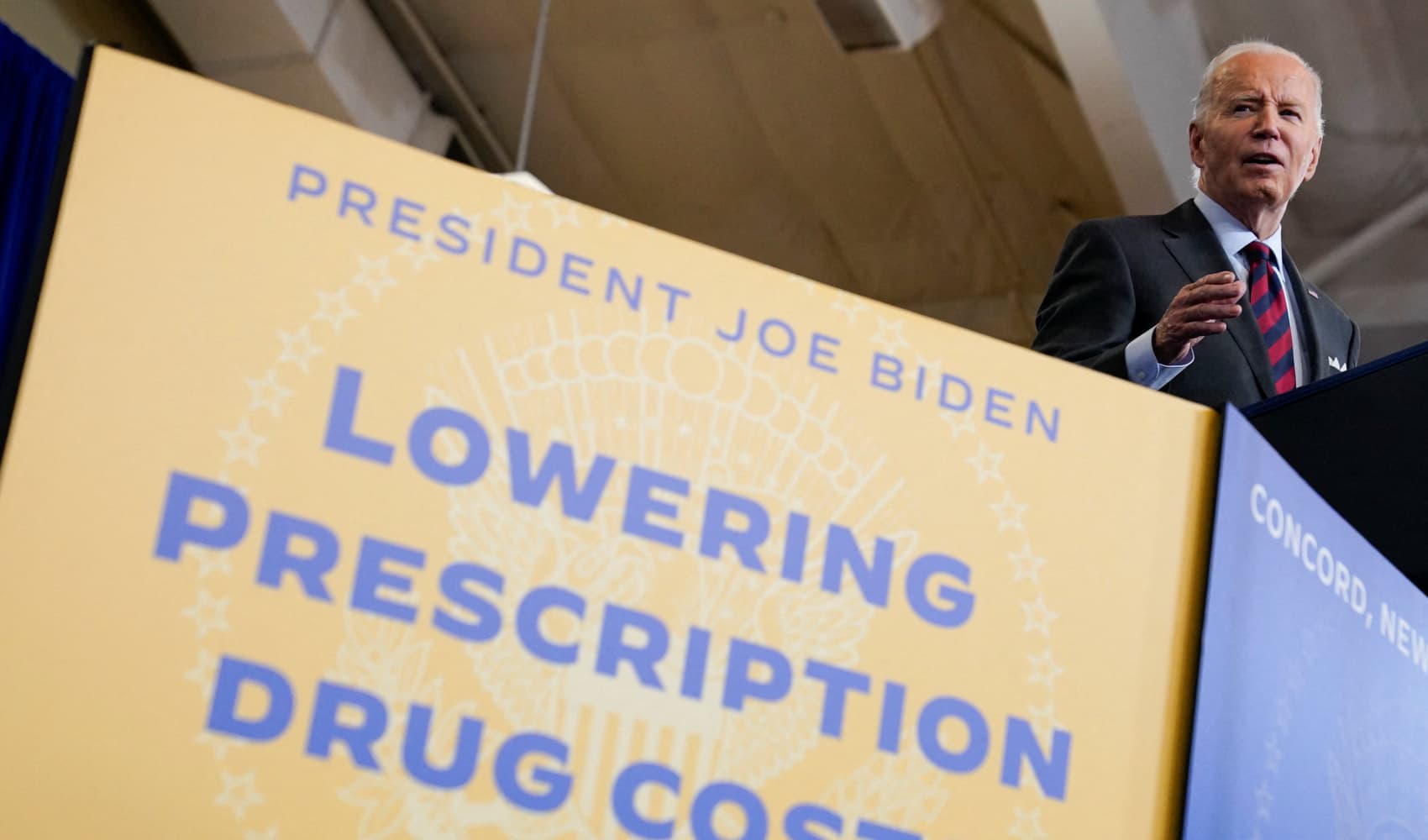
Mike Lynch-backed legal tech startup Luminance raises $40 million, capitalizing on AI hype
- Legal tech firm Luminance has raised $40 million in a venture round backed by U.S. venture fund March Capital, National Grid Partners, and law firm Slaughter and May, the company told CNBC.
- Luminance said its annual recurring revenue has jumped roughly fivefold in the past two years, as the company saw growth from notable customers including Koch Industries, Hitachi, Liberty Mutual, LG Chem, and BBC Studios.
- Luminance declined to comment on its valuation, but the company's CEO Eleanor Lightbody said that it fetched a "significant premium" over the $100 million valuation the company secured in 2018, when it last raised external funds.
Legal technology firm Luminance has raised $40 million in fresh funding from investors to grow its U.S. footprint, capitalizing on the wave of investor interest surrounding artificial intelligence.
Watch NBC6 free wherever you are
The company told CNBC that it raised the fresh capital in a Series B funding round led by U.S. venture fund March Capital. National Grid Partners, the venture capital arm of the National Grid, and law firm Slaughter and May, also invested in the round.
"We had lots of interest from lots of VCs," Eleanor Lightbody, CEO of Luminance, told CNBC in an interview on Tuesday.
Get local news you need to know to start your day with NBC 6's News Headlines newsletter.
The fact that AI is now a "hot topic" certainly helped, Lightbody said, but she added that Luminance had the metrics — such as its annual sales performance — to match the interest it's gotten from investors.
Lightbody said that businesses are investing in AI tools like Luminance's to keep a competitive edge, as well as to reduce costs.
"Everyone wants to stay competitive," she told CNBC. "We want to build opportunities they didn't know existed."
Money Report
Luminance said its annual recurring revenue jumped roughly fivefold in the past two years, but declined to share figures with CNBC. The company counts the likes of Koch Industries, Hitachi, Yokogawa, Liberty Mutual, LG Chem, and BBC Studios as its clients.
Legal business
Founded in September 2015, Luminance develops machine learning models that help lawyers automate contract reviews and shorten the time it takes to get them signed. The company was founded by a combination of lawyers, mathematicians, and experts in mergers and acquisitions at the University of Cambridge.
Luminance is one firm of the many generating buzz from investors thanks to the hype swirling around artificial intelligence. Companies like OpenAI, Anthropic, Cohere, and Mistral have raised billions of dollars from venture capitalists — along with interest from large tech firms like Microsoft and Amazon.
Microsoft has invested north of $10 billion into OpenAI, and the firm recently completed a secondary share sale led by Thrive Capital, valuing it at $80 billion.
Luminance declined to comment on its valuation, but Lightbody said that it fetched a "significant premium" over the $100 million assessment that the company secured in 2018, when it last raised external funds.
Investors have been placing bets on sector-specific AI companies lately, sometimes in favor of businesses pursuing a form of "general" AI that would be capable of performing any task imaginable.
In a sector like law, where a high level of attention needs to be paid to a company's specific legal controls and decision-making, Lightbody said that general-purpose AI solutions like ChatGPT aren't the answer.
"We're going to start seeing a lot more specialized AI companies come out," Lightbody said. "That's exactly what we're doing."
She noted that domain-specific large language models are "absolutely key" in the legal field.
"It's important because, unlike generative AI, where it doesn't really matter whether the answer is wrong because the whole point of AI is to come up with an answer, when it comes to legal that just can't happen."
Generative AI tools like ChatGPT have become known for producing "hallucinations" — answers that contain false information about certain historical events, in an effort to guess the answer to a user's question.
Luminance plans to invest aggressively toward expanding its U.S. footprint, in an effort that Lightbody said will include hiring new executives locally, as well as exploring new offices.
Autopilot
Last year, the company launched an artificial intelligence tool capable of negotiating a contract completely autonomously without any human involvement. Luminance says the instrument, dubbed Autopilot, handles day-to-day contracts negotiations, and especially the tedious manual work of reviewing nondisclosure agreements (NDAs).
Luminance developed the AI based on its own proprietary large language model (LLM). LLMs are a type of AI algorithm that can achieve general-purpose language processing and generation.
The business is backed by Invoke Capital, the venture capital arm owned by controversial British entrepreneur Mike Lynch.
Lynch has been accused of artificially inflating the value of his software company Autonomy to Hewlett Packard Enterprise, which is suing him for billions of dollars' worth of alleged losses.
He has been charged by the U.S. Justice Department with 14 counts of wire fraud, one count of securities fraud, and one count of conspiracy to commit wire fraud. Lynch denies the charges and says that Autonomy underperformed under HPE due to mismanagement from its new owner.
Lightbody said that the U.S. proceedings against Lynch aren't creating uncertainty for Luminance, and that the businessman has no day-to-day involvement in the running of the company.
Correction: This article has been updated to reflect the spelling of Eleanor Lightbody's name.






